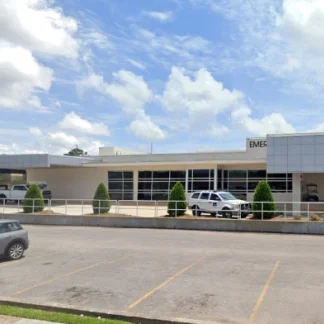Saint Charles Parish Hospital - Psychiatric Unit
Luling, Louisiana, 1057 Paul Maillard Road, 70070
Available Programs
- Adult program
- Program for men
- Program for women
- Young adult program
Insurance and Financial
- Medicaid
- Private insurance
- Self-pay options
- Financial aid
- Medicare
- Military insurance
About this Facility
Saint Charles Parish Hospital – Psychiatric Unit is a public rehab located in Luling, Louisiana. Saint Charles Parish Hospital – Psychiatric Unit specializes in the treatment of alcoholism, drug addiction, mental health and substance abuse, and opioid addiction.
Contact us for more information: (985) 785-6242

Contact Saint Charles Parish Hospital - Psychiatric Unit
Connect with Saint Charles Parish Hospital - Psychiatric Unit by calling their admissions team directly.
(985) 785-6242 Website Get Directions